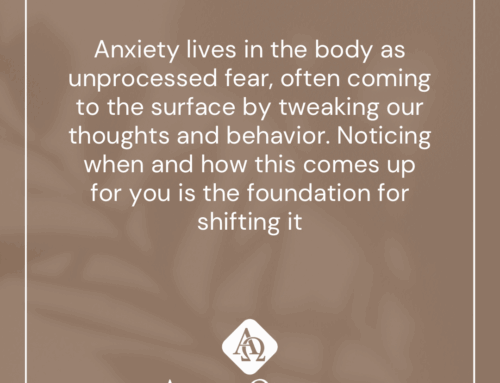We are not our thoughts. That may seem obvious but it’s sobering to reflect on how often we accept them as truth. This is particularly relevant for thoughts that are fueled by or associated with intense emotions. Emotion that is powerfully felt creates memories and patterns around it. Those patterns then become core orienting cognitions. You can think of these core cognitions as models or maps for how to survive in the world. Here are two very simple examples:
Thought based on an intense emotion: I’m not worthy of love. Behavior: Pursue becoming worthy of love.
Thought based on an intense emotion: Other people are dangerous and will hurt you. Behavior: Don’t trust people, depend on them or ask for help.
What we endure can shape a perpetual way of thinking/behaving that protects us. While this may have been relevant at some point in our lives, it can become too rigid and eventually harm us. This is often referred to as dysfunction but I prefer to frame it as restraining our humanity. We become trapped in a prison of negative thoughts and feelings.
Attention plays a key role is uprooting or reprocessing these patterns. Next time you notice a perpetual thought, ask yourself what story you’re hearing on the inside. Seek to place this story in your experience. Notice your body, are you feeling something uncomfortable? Has this thought popped up before? What do you need to think and feel to help you rewrite the story? How would it be to invite God into creating a new story of healing and wholeness.
Want more ways to receive this content? Follow us on Instagram or Facebook or subscribe to our e-newsletter.
* The information provided is for self-enrichment and not intended to replace any necessary mental health treatment.
Warmly,
Jonathan Dixon, LMFT
Alpha Omega Team





